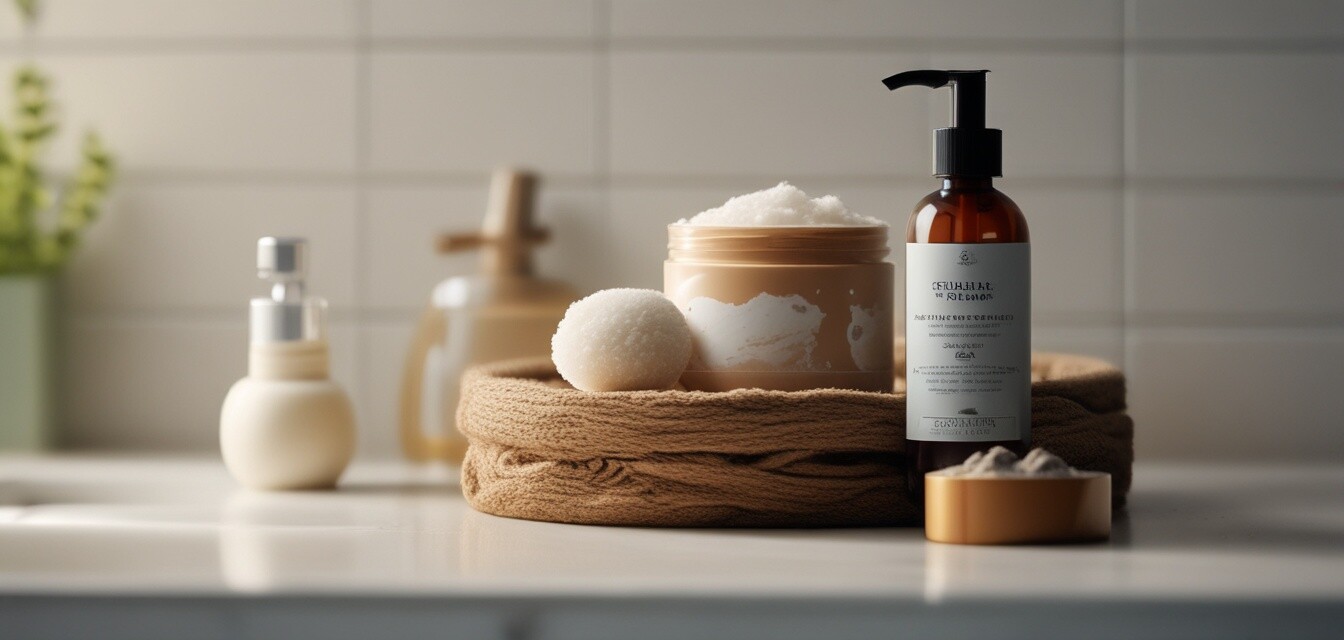
How to choose the right exfoliation method
Key Takeaways
- Understand your skin type to select the appropriate exfoliation technique.
- Consider your anti-aging goals when choosing an exfoliation method.
- Differentiate between physical and chemical exfoliants for best results.
- Frequency and skin sensitivity should guide your exfoliation schedule.
- Always follow up with moisturizer after exfoliation to maintain hydration.
When it comes to maintaining youthful, radiant skin, exfoliation plays a crucial role. With so many methods and products available, selecting the right exfoliation technique can be overwhelming. This guide provides insights into choosing the appropriate method based on your skin type and anti-aging goals.
Understanding exfoliation
Exfoliation is the process of removing dead skin cells from the surface of the skin. This can lead to a more polished and even complexion while helping to enhance the effectiveness of skincare products. The choice of exfoliation method depends largely on your skin type and specific skin concerns.
Types of exfoliation methods
| Type | Description | Best For |
|---|---|---|
| Physical Exfoliation | Involves using scrubs or tools to manually remove dead skin cells. | Oily or normal skin types. |
| Chemical Exfoliation | Utilizes acids (like AHAs, BHAs) to dissolve dead skin cells. | Dry or sensitive skin types. |
Choosing the right method for your skin type
1. Oily skin
If you have oily skin, physical exfoliants like scrubs or brushes can help clear away excess oil and dead skin cells. However, ensure that you exfoliate gently to avoid irritation.
2. Dry skin
For those with dry skin, chemical exfoliants such as AHAs (like glycolic acid) work effectively without stripping moisture. They help to hydrate the skin while promoting cell turnover.
3. Sensitive skin
If you have sensitive skin, opt for gentle chemical exfoliants like lactic acid or enzymatic exfoliants. They provide effective results without the harshness of physical scrubbing.
4. Combination skin
Individuals with combination skin may benefit from alternating between physical and chemical exfoliants to address both oily and dry areas effectively.
Exfoliation frequency based on skin sensitivity
How often you exfoliate is just as critical as the method you choose. Here’s a general guideline:
| Skin Type | Frequency |
|---|---|
| Oily | 2-3 times per week |
| Dry | 1-2 times per week |
| Sensitive | Once every 7-10 days |
| Combination | 2 times per week, varying methods |
Post-exfoliation care
After exfoliating, it’s important to follow up with a moisturizer to restore hydration. It’s also advisable to apply sunscreen during the day, especially after using chemical exfoliants that may increase skin sensitivity.
Tips for beginners
- Start slowly: Introduce exfoliation gradually to avoid irritation.
- Patch test new products to gauge your skin’s reaction.
- Keep your skincare routine simple and focus on hydration.
- Consult with a dermatologist if in doubt about your skin needs.
- Explore further tips in our Tips and Tricks category.
Pros
- Improves skin texture and tone.
- Enhances the effectiveness of skincare products.
- Can help reduce the appearance of fine lines.
Cons
- Over-exfoliation may irritate skin.
- Some methods may require a learning curve.
- Chemical exfoliants might cause sensitivity in some users.
Final thoughts
Choosing the right exfoliation method depends on understanding your skin type and concerns. By selecting the appropriate technique and frequency, you can effectively incorporate exfoliation into your skincare routine and reap its benefits. Explore other natural anti-aging methods and products from our categories such as Exfoliating Scrubs and Organic Serums to complement your regimen.
